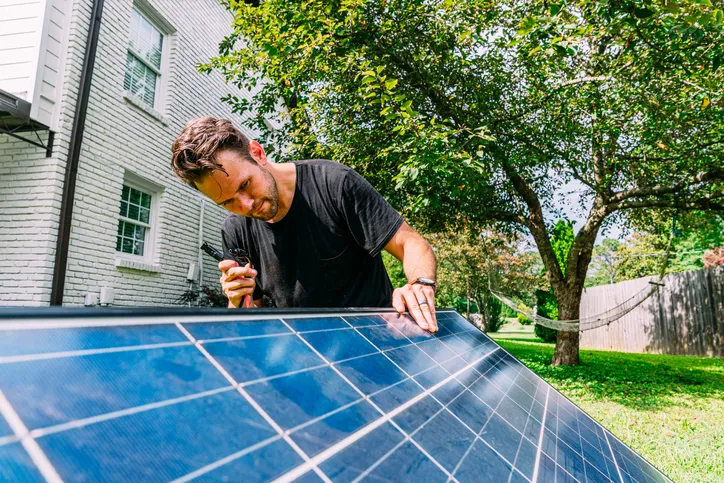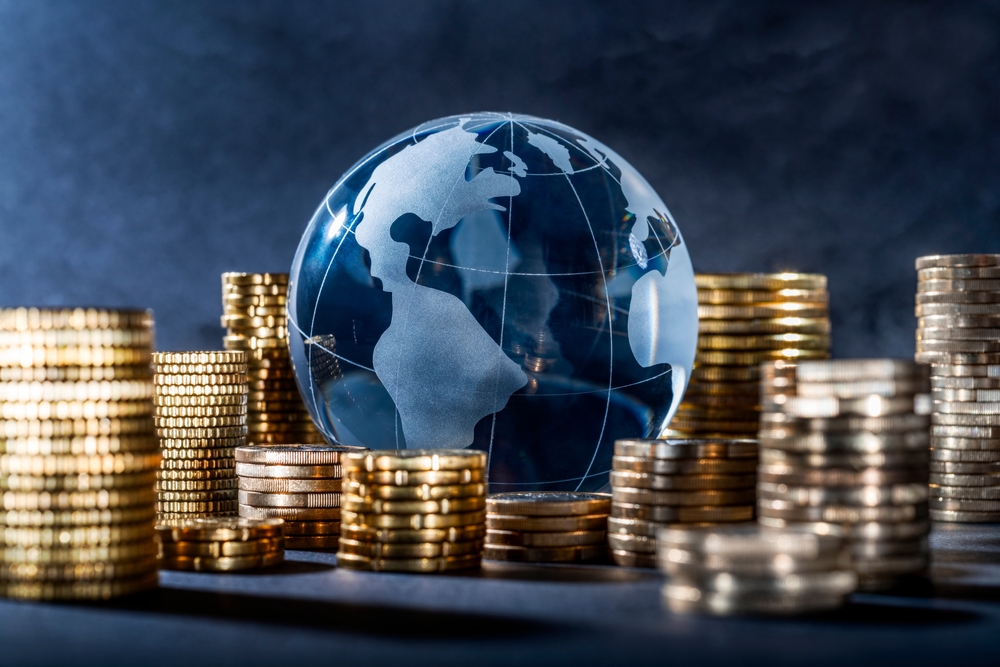Investing in stocks has been the go-to strategy for many looking to grow their wealth, but have you ever wondered whether there are other promising avenues for your money? With the world constantly changing and evolving, alternative investments have gained traction as lucrative options, sometimes even outpacing traditional stocks in terms of growth. Let’s dive into these intriguing opportunities and see what they have to offer. Here are 13 genius alternative investments that are growing faster than stocks and could be worth considering.
1. Real Estate Crowdfunding: The New Frontier

Real estate crowdfunding is revolutionizing property investment by allowing everyday investors to pool their money and participate in lucrative real estate deals. This approach eliminates the need for large sums of upfront capital, making real estate accessible to a broader audience. According to Forbes, the global real estate crowdfunding market is expected to grow significantly, offering investors a chance to reap the benefits of property ownership without the hassle of managing it.
The beauty of this model is that it democratizes real estate investing, giving individuals a piece of the pie that was once reserved for the elite. Investors can diversify their portfolios by selecting different types of properties, ranging from residential to commercial spaces. Additionally, real estate crowdfunding platforms often conduct due diligence on projects, allowing investors to make informed decisions. And while risks are inherent, the potential returns and the diversification benefits make this a compelling alternative investment option.
2. Peer-to-Peer Lending: Banking on Your Terms

Peer-to-peer (P2P) lending has emerged as a disruptive force in the financial world, allowing individuals to lend money directly to others, bypassing traditional banks. This innovative approach results in higher returns for lenders and more favorable loan terms for borrowers. According to CNBC, the P2P lending market is growing rapidly, driven by demand for alternative financing solutions in the wake of increasingly restrictive bank lending practices.
The appeal of P2P lending lies in its simplicity and potential for significant returns compared to traditional savings or investment accounts. Investors can choose the level of risk they are comfortable with, investing in loans with varied credit scores and terms. With the rise of various online platforms, managing and monitoring investments has become more accessible than ever before. However, it’s crucial to conduct thorough research and understand the risks involved, as defaults are a possibility in lending scenarios.
3. Green Energy: Powering the Future

Investing in green energy isn’t just good for the planet; it can be good for your wallet too. The push towards sustainable energy sources is stronger than ever, with governments and businesses worldwide investing heavily in renewables like solar, wind, and hydroelectric power. As World Economic Forum reports, the global renewable energy market is expected to continue its rapid growth, presenting a promising opportunity for investors.
Green energy investments offer attractive returns, especially as technology advances and costs decrease. By investing in this sector, you’re not only potentially reaping financial rewards but also contributing to the fight against climate change. This type of investment can take many forms, including stocks in renewable energy companies, green bonds, or even direct investments in energy projects. However, like any investment, it’s important to consider the risks and perform due diligence before diving in.
4. Art and Collectibles: Investing with an Eye for Beauty

Art and collectibles are more than just visually appealing; they can be a profitable investment avenue. The art market has historically shown resilience, even during economic downturns, making it an attractive option for diversifying investment portfolios. Unlike stocks, which can be volatile and unpredictable, art and collectibles often retain or increase their value over time, provided you invest in the right pieces.
Building a collection requires knowledge and an appreciation for art, but it can also be a deeply rewarding experience. The key to success is understanding which artists or pieces are likely to appreciate in value and keeping an eye on market trends. While the investment can be less liquid than stocks, the potential long-term gains, combined with the enjoyment of owning beautiful pieces, make it worthwhile. Like all investments, it’s crucial to educate yourself and possibly consult with experts in the field.
5. Cryptocurrencies: Riding the Digital Wave

Cryptocurrencies have captured the imagination of investors globally, presenting a unique opportunity with potentially high returns. While Bitcoin remains the most well-known, thousands of other cryptocurrencies offer diverse options for investment. Despite their volatility, cryptocurrencies have shown significant growth over the past decade, enticing both seasoned investors and newcomers alike.
The decentralized nature of cryptocurrencies means they aren’t subject to the same regulations as traditional financial instruments, appealing to those seeking alternative assets. Nevertheless, this lack of regulation also brings risks, such as market manipulation and security issues. Educating yourself on blockchain technology and staying updated on market trends is vital if you’re considering diving into this space. As with any investment, it’s important to weigh the potential for high returns against the inherent risks and volatility.
6. Farmland: Harvesting Growth Opportunities

Investing in farmland offers the dual benefits of potential income and capital appreciation. As the global population continues to rise, the demand for food will only increase, putting farmland in higher demand. Historically, farmland has provided stable returns and has been less volatile compared to other asset classes. Additionally, farmland investments often exhibit a low correlation with traditional stocks, providing diversification benefits.
Owning farmland can also provide a hedge against inflation, as food prices tend to rise with inflation, increasing the value of the land. Investors can participate in farmland investment through direct ownership or through agricultural investment funds. However, investing in farmland requires a deep understanding of agricultural markets, climate factors, and land management. It’s an asset class that benefits from a long-term view, patience, and a commitment to sustainable practices.
7. Venture Capital: Fueling the Next Big Idea

Venture capital (VC) investing allows individuals to fund startups and early-stage businesses with high growth potential. This type of investment can be incredibly rewarding, as backing the next unicorn can lead to substantial returns. However, it’s also inherently risky, as many startups fail or take longer than expected to become profitable. The key is to diversify your investments and understand the sectors you’re investing in to mitigate risks.
Participating in venture capital requires a keen eye for innovation and trends, as well as a willingness to embrace risk. By supporting pioneering ideas and cutting-edge technologies, investors play a crucial role in shaping the future. Many VC investors are also actively involved in guiding the businesses they fund, adding a layer of personal engagement beyond financial investment. While the risks are high, the potential rewards are equally enticing, making venture capital a thrilling and potentially lucrative investment option.
8. Wine: Investing in Vintage Appreciation

Wine investment has gained popularity as a unique and enjoyable way to diversify portfolios. Fine wines, particularly from renowned regions and vintages, have a history of appreciating in value over time. Unlike traditional stocks, wine offers the added benefit of being a tangible asset that can be enjoyed. The key to successful wine investment is understanding which wines are likely to appreciate and ensuring proper storage conditions.
Investing in wine requires research, patience, and a passion for the product. It’s important to track market trends, know trusted suppliers, and perhaps even seek advice from wine experts. While the initial costs can be high due to the need for proper storage, the long-term potential for appreciation can be quite rewarding. Moreover, the joy of owning and potentially tasting your investment adds a personal touch to this alternative asset class.
9. Precious Metals: The Timeless Store of Value

Precious metals like gold, silver, and platinum have long been considered a safe haven for investors, especially in times of economic uncertainty. These metals have intrinsic value and are often used as a hedge against inflation and currency fluctuations. Unlike stocks, which can be volatile and affected by market sentiment, precious metals tend to maintain value over time, providing stability to an investment portfolio.
Investing in precious metals can be done through physical ownership or via financial instruments like ETFs and mining stocks. Each approach has its benefits and drawbacks, with physical ownership offering tangible security and financial instruments providing liquidity and convenience. Like any investment, understanding the market dynamics and timing your entry and exit points are crucial for maximizing returns. While precious metals might not offer the explosive growth potential of other assets, their stability and historical track record make them a reliable alternative investment choice.
10. Forestry: Growing Your Wealth Naturally

Forestry investment offers a sustainable and environmentally friendly way to grow wealth. As global demand for timber and forest products increases, investing in forestry can provide both income and capital appreciation. Forests also play a critical role in carbon sequestration, making them crucial in the fight against climate change. This environmental benefit adds an ethical dimension to forestry investments, attracting eco-conscious investors.
Forestry investments can be made directly by purchasing land or indirectly through investment funds and companies specializing in timberland. While the initial investment can be substantial, the long-term nature of forestry provides stability and diversification benefits. Investors should be prepared for a commitment, as forestry involves ongoing management and adherence to sustainable practices. With careful planning and a focus on sustainability, forestry can offer both financial rewards and the satisfaction of contributing positively to the environment.
11. Music Royalties: Tuning into Passive Income

Investing in music royalties offers a unique way to earn passive income by acquiring rights to song royalties. As music is played on various platforms, from streaming services to radio stations, royalties are generated, providing a steady income stream for investors. The rise of digital music consumption has expanded the potential for earning through royalties, making this a lucrative and growing market.
Music royalties as an investment can offer diversification and a hedge against market volatility. However, it requires an understanding of the music industry and access to quality catalogues. Platforms now exist to facilitate these investments, connecting investors with opportunities in the music rights market. While it might require a learning curve, the potential for attractive returns and the enjoyment of owning a part of your favorite music make it an appealing alternative investment.
12. Infrastructure: Building Foundations for Growth

Infrastructure investment involves funding projects like roads, bridges, and utilities that form the backbone of a functioning society. These projects are crucial for economic growth and resilience, often backed by government support, making them relatively stable and low-risk investments. With growing global infrastructure needs, especially in developing regions, this sector presents significant growth opportunities for investors.
Investing in infrastructure can be done through stocks, bonds, or private equity funds dedicated to infrastructure projects. These investments typically offer long-term yield potential and lower volatility compared to traditional stocks. The steady cash flows generated from these projects can offer a reliable income stream, appealing to risk-averse investors. While infrastructure investing can be complex, requiring significant capital and expertise, the potential for stable returns and societal impact make it an appealing option.
13. Online Businesses: Clicking Towards Profit

Investing in online businesses offers a dynamic and modern way to participate in the digital economy. With the internet becoming an integral part of daily life, online businesses have exhibited explosive growth potential, often outpacing traditional brick-and-mortar enterprises. From e-commerce platforms to digital services, the opportunities are vast and varied, catering to diverse interests and investment goals.
Investors can choose to buy existing online businesses or invest in promising startups and digital ventures. The flexibility and scalability of online businesses mean they can adapt quickly to market changes, capitalizing on emerging trends. However, investing in this space requires a strong understanding of digital marketing, technology, and consumer behavior. While the risks are present, the low overhead costs and potential for high returns make online businesses a compelling alternative investment option.
This article is for informational purposes only and should not be construed as financial advice. Consult a financial professional before making investment or other financial decisions. The author and publisher make no warranties of any kind.








